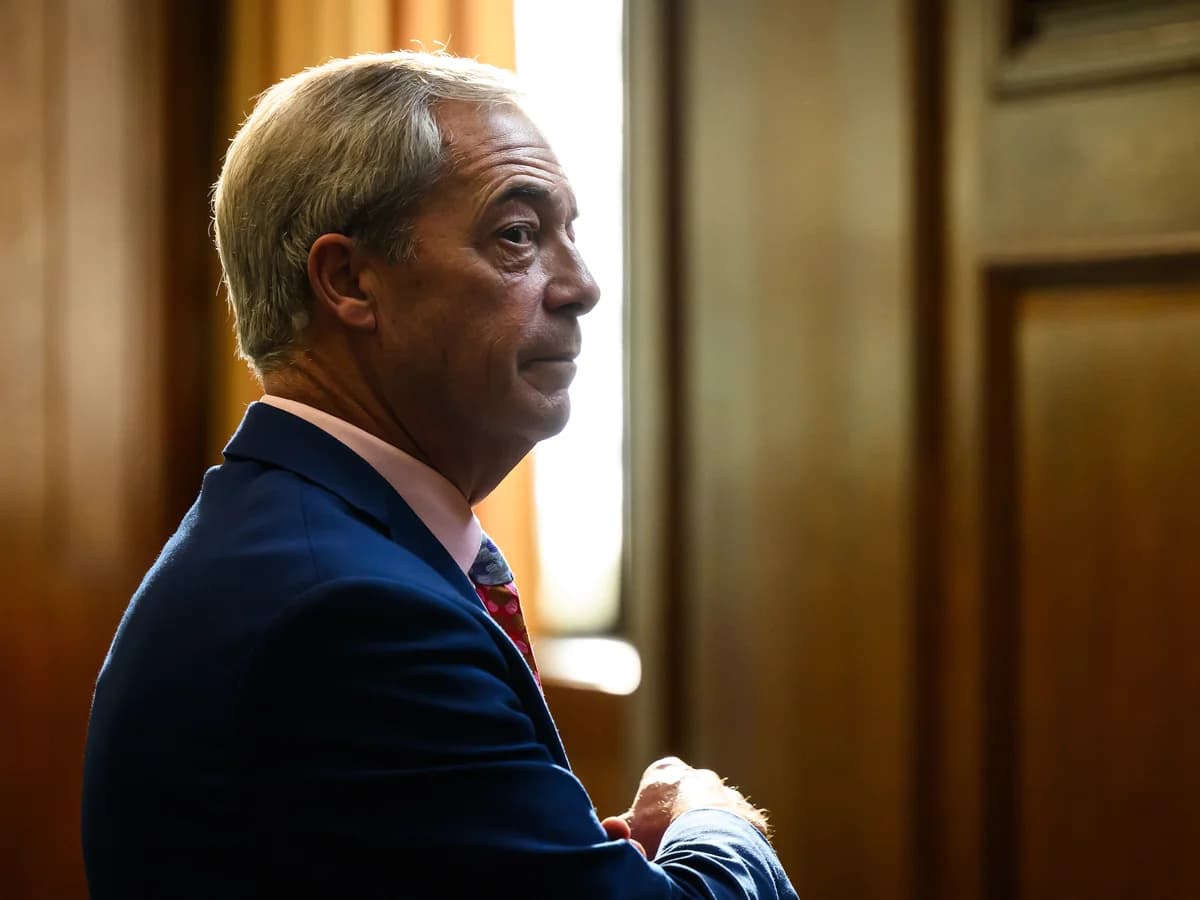We're loading the full news article for you. This includes the article content, images, author information, and related articles.
Reform UK leader Nigel Farage’s pledge to overhaul British business regulations could reshape the terms of trade for Kenyan exporters, prompting scrutiny of the existing UK-Kenya Economic Partnership Agreement.

LONDON, United Kingdom – Reform UK leader Nigel Farage is scheduled to deliver a major economic policy speech in London on Monday, 3 November 2025, outlining a vision for widespread business deregulation in the United Kingdom. While the announcement is aimed at a domestic audience, its potential ripple effects are being closely monitored in Nairobi, where implications for the crucial UK-Kenya trade relationship hang in the balance.
Farage, a key architect of the 2016 Brexit campaign, will argue that the UK has failed to capitalize on its departure from the European Union by not sufficiently cutting business regulations. "The harsh truth is that regulations and regulators, in many areas, are worse than they were back in 2016," he is expected to say. The speech will position Reform UK as a "pro-business, pro-entrepreneurship" party, promising to free businesses to boost economic growth and create well-paid jobs.
In a move designed to enhance his party's fiscal credibility, Farage will also retreat from a previous £90 billion tax-cut pledge, stating that such measures will only be considered after public spending is brought under control. This pivot comes as the party seeks to solidify its economic platform following criticism from policy experts.
The proposed deregulation has significant potential consequences for Kenya, for which the UK is a vital export market. The trade relationship is governed by the UK-Kenya Economic Partnership Agreement (EPA), which was ratified in March 2021 to ensure trade continuity post-Brexit. This agreement provides Kenyan goods, particularly key agricultural exports, with duty-free, quota-free access to the UK market.
According to a September 2025 factsheet from the UK's Department for Business and Trade, the total trade in goods and services between the two nations was £1.9 billion in the year ending Q1 2025, a 12.6% increase from the previous year. Kenyan exports to the UK have surged since the EPA was signed, reaching $1.43 billion in 2024, a 64% increase from 2021. The main exports include tea, cut flowers, fruits, and vegetables, which form the backbone of Kenya's horticultural sector.
A 'bonfire' of UK regulations could alter the standards—including sanitary, phytosanitary, and environmental requirements—that these Kenyan products must meet. While this could potentially lower barriers for some exporters, it also raises questions about the future of mutually recognized standards that underpin the current EPA. Farage has not yet detailed how his deregulation agenda would affect existing international trade agreements, creating uncertainty for Kenyan producers and policymakers.
Beyond trade in goods, the UK is a significant source of foreign direct investment (FDI) in Kenya. At the end of 2023, the stock of UK FDI in Kenya was £804 million. Farage's focus on making the UK more competitive could influence British firms' decisions, potentially encouraging domestic investment over foreign ventures. However, a stronger British economy could also empower UK companies to expand their global footprint, including in established markets like Kenya.
Furthermore, Reform UK's platform includes a proposal to cut the UK's foreign aid budget by 50%. Such a policy, if implemented, could significantly impact development programmes in Kenya, which has historically been a major recipient of UK aid, particularly in areas like green energy and climate resilience. In April 2024, the UK announced £6.6 million in funding for 50 green investment projects across Kenya. The future of such partnerships would be unclear under a government committed to halving its aid spending.
As Farage prepares to detail his economic vision, Kenyan exporters, business leaders, and government officials will be listening intently. The specifics of his deregulation plan and his stance on international trade commitments will be critical in determining the future trajectory of the robust, but potentially volatile, economic relationship between Kenya and the United Kingdom.
Keep the conversation in one place—threads here stay linked to the story and in the forums.
Sign in to start a discussion
Start a conversation about this story and keep it linked here.
Other hot threads
E-sports and Gaming Community in Kenya
Active 9 months ago
The Role of Technology in Modern Agriculture (AgriTech)
Active 9 months ago
Popular Recreational Activities Across Counties
Active 9 months ago
Investing in Youth Sports Development Programs
Active 9 months ago